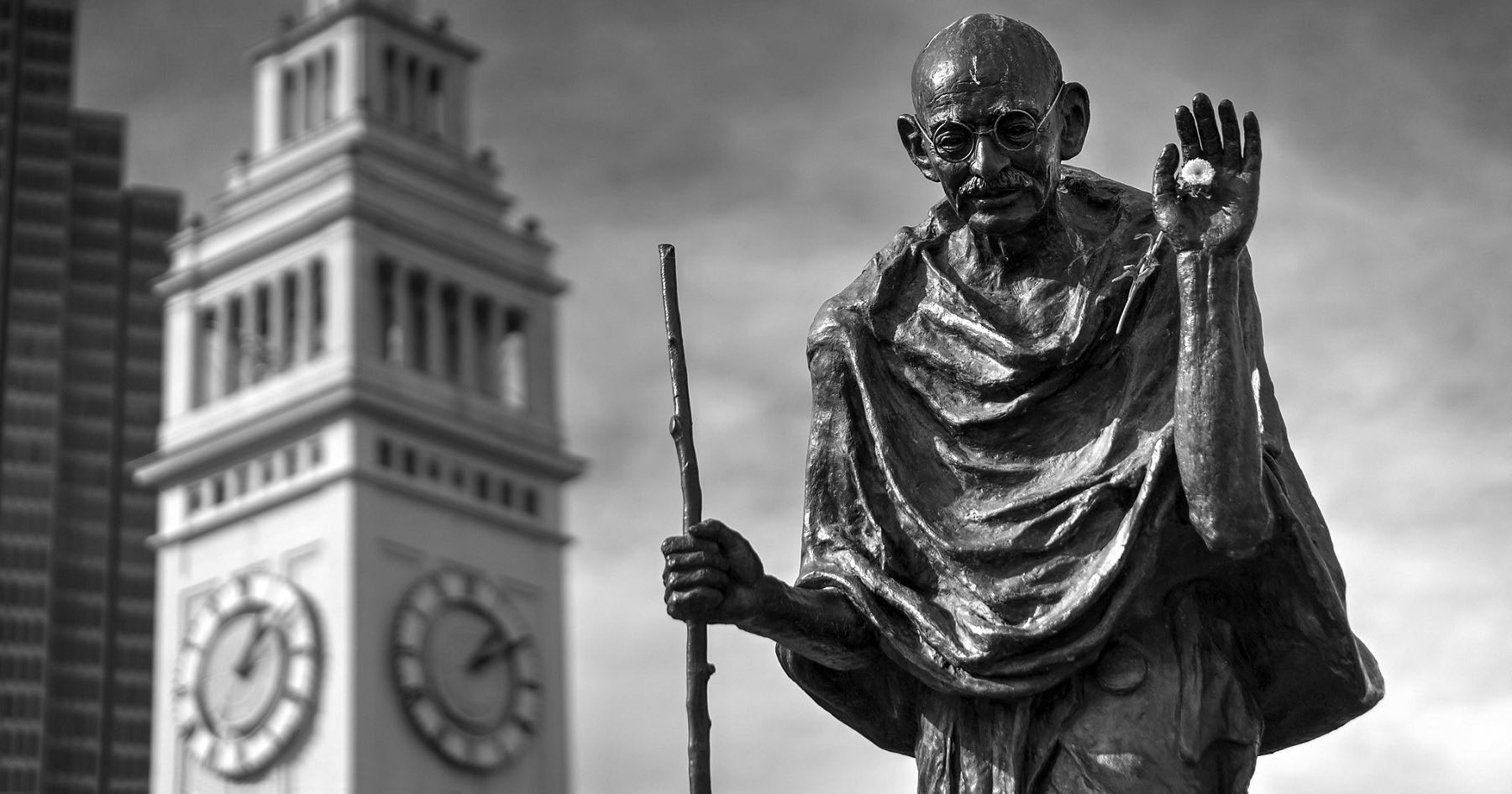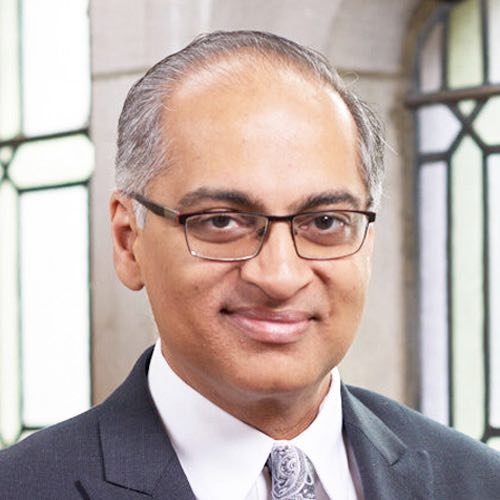This past week, I finally got around to reading a letter of historic importance — lost for nearly 90 years and republished only last January. On Oct. 17, 1934, a 28-year-old German pastor wrote to a revered Indian leader who had just turned 65, requesting permission to visit and study under him. He writes with new urgency as he feels time slipping away:
“It is no use to foretell the future which is in God’s hands, but if not all signs deceive us, everything seems to work for war in the near future, and the next war will certainly bring the spiritual death of Europe. What we need therefore in our countries is a truly spiritual living christian peace movement. Western Christianity must be reborn on the Sermon on the Mount and here is the crucial point why I am writing to you. From all I know about you and your work after having studied your books and your movement for a few years, I feel we western Christians should try to learn from you, what realisation of faith means, what a life devoted to political and racial peace can attain. If there is anywhere a visible outline towards such attainments, than I see it in your movement. I know, of course, you are not a baptised Christian, but the people whose faith Jesus praised mostly did not belong to the official Church at that time either. We are having great theologians in Germany — the greatest of them being to my opinion Karl Barth, whose disciple and friend I am happy to be — they are teaching us the great theological thoughts of the Reformation anew, but there is no one to show us the way towards a new christian life in uncompromising accordance with the Sermon on the Mount. It is in this respect that I am looking up to you for help.”
The writer was Dietrich Bonhoeffer, the recipient, Mahatma Gandhi. The trip never materialized. Eleven years after sending that letter, Bonhoeffer was executed by the Nazis. Dietrich never met Mohandas, the man whom he so deeply venerated.
The letter will not leave me. Watching the rise of the Nazis, Bonhoeffer worried about the “spiritual death of Europe.” Living in the aftermath of that second gory war — not just its brutal battles but also the Holocaust and the bombing of Hiroshima and Nagasaki — we know Bonhoeffer was not wrong in the slightest. But if he was on target about diagnosis, surely Bonhoeffer was also right about his proposed cure, namely a return to the Sermon on the Mount.
British Columbian Anglicans recognize that our established institutional forms are dying. Grief is unavoidable as our ranks dwindle. Still, we would be wise to heed Bonhoeffer’s confidence in and hope for rebirth: the credibility of any future Christian faith hinges on faithful discipleship to Jesus’ teaching. Bonhoeffer was pleased with the theological recovery of Reformation teaching about justification by grace; but he knew that it wouldn’t do. A living and costly discipleship to the nonviolent teachings of neighbour and enemy love — a Christianity of deeds not just creeds — was the urgent need of Bonhoeffer’s century, as it is of ours.
Do we have evidence to support Bonhoeffer’s spiritual intuition? Let’s ask, where was Christian faith most vibrantly experienced in the last century? Ironically, in a Hindu living out the Sermon on the Mount and in his Christian disciple’s reception thereof. That disciple? Rev. Dr. Martin Luther King, Jr. About Gandhi, Dr. King, Jr. writes the following:
“As I delved deeper into the philosophy of Gandhi my skepticism concerning the power of love gradually diminished, and I came to see for the first time its potency in the area of social reform. Prior to reading Gandhi, I had about concluded that the ethics of Jesus were only effective in individual relationships. The “turn the other cheek” philosophy and the “love your enemies” philosophy were only valid, I felt, when individuals were in conflict with other individuals; when racial groups and nations were in conflict a more realistic approach seemed necessary. But after reading Gandhi, I saw how utterly mistaken I was. Gandhi was probably the first person in history to lift the love ethic of Jesus above mere interaction between individuals to a powerful and effective social force on a large scale. Love for Gandhi was a potent instrument for social and collective transformation. It was in this Gandhian emphasis on love and nonviolence that I discovered the method for social reform that I had been seeking for so many months.”
When Bonhoeffer, Gandhi, and King concur, we’d best pay heed to them. The question is, how? What would it mean for BC Anglicans and other Western Christians to live out the Sermon on the Mount in the wake of residential schools and colonialism more broadly? What meaning can the Sermon on the Mount have in a time of climate disaster? How can we best listen to and learn from our neighbors of other traditions on how to live out the Sermon? We cannot know the answers until we patiently raise and pray these questions. Wrestling with these questions together will be essential if a living Christianity is to be reborn here in British Columbia.
The letter from Dietrich Bonhoeffer is quoted as is, spelling errors and all, as published by Clifford Green under the title “Dietrich Bonhoeffer’s Letter to Mahatma Gandhi” in the Journal of Ecclesiastical History‘s January 2021 issue. The letter from Martin Luther King, Jr. is quoted from The Radical King, edited by Cornel West.




